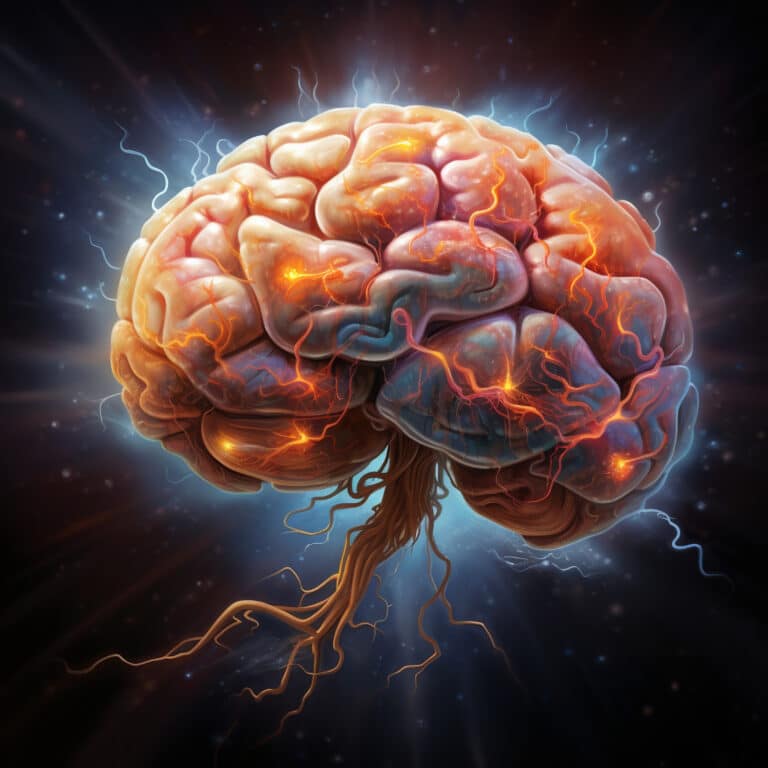5 Key Factors About Brains
The human brain is a complex and fascinating organ that controls all aspects of our body and mind. Understanding the brain’s key factors can help us appreciate its functions and complexities.

1. The Brain’s Structure and Function
The brain is divided into several main parts, each with specific functions:
- Cerebrum: The largest part, responsible for higher brain functions like thinking, memory, and emotion.
- Cerebellum: Located under the cerebrum, it coordinates muscle movements and maintains posture and balance.
- Brainstem: Connects the brain to the spinal cord and controls automatic functions like breathing and heart rate.
Each part works together, allowing us to perform everyday activities effortlessly.
2. Neurons and Synapses
The brain is composed of billions of neurons, which are the primary cells that transmit information. Neurons communicate with each other through synapses, small gaps between neurons where neurotransmitters are released. This communication network is crucial for brain function:
- Neurons: Specialized cells that transmit electrical and chemical signals.
- Synapses: Junctions between neurons allowing for signal transmission.
- Neurotransmitters: Chemicals that transmit signals across synapses.
This intricate system enables everything from basic reflexes to complex thoughts.
3. Brain Plasticity
Brain plasticity, or neuroplasticity, refers to the brain’s ability to change and adapt throughout life. This ability is crucial for learning, memory, and recovery from brain injuries:
- Synaptic Plasticity: Changes in the strength of synapses, which are essential for learning and memory.
- Structural Plasticity: Changes in the brain’s physical structure in response to learning, experience, or injury.
Plasticity ensures the brain can adapt to new experiences and challenges, highlighting its remarkable flexibility.
4. The Brain and Emotions
The brain plays a vital role in regulating emotions, with specific areas dedicated to processing emotional responses:
- Amygdala: Involved in detecting fear and preparing for emergency events.
- Hippocampus: Crucial for forming new memories and connecting them with emotions.
- Prefrontal Cortex: Responsible for regulating emotions and decision-making.
Understanding these areas helps us grasp how emotions are generated and controlled.
5. Brain Health and Lifestyle
Maintaining brain health is essential for overall well-being. Several lifestyle factors significantly impact brain health:
- Diet: Nutrient-rich foods like fruits, vegetables, and fish promote brain health.
- Exercise: Physical activity increases blood flow to the brain and encourages the growth of new neurons.
- Sleep: Adequate sleep is crucial for memory consolidation and overall brain function.
- Mental Stimulation: Engaging in challenging activities keeps the brain sharp and prevents cognitive decline.
Incorporating healthy habits can enhance brain function and protect against age-related decline.
How does exercise benefit the brain?
Exercise increases blood flow to the brain, promotes the growth of new neurons, and releases neurotrophic factors that support neuron survival and function.
Can diet affect brain health?
Yes, a diet rich in omega-3 fatty acids, antioxidants, and vitamins supports brain health and cognitive function.
What is neuroplasticity?
Neuroplasticity is the brain’s ability to change and adapt throughout life, which is crucial for learning, memory, and recovery from injury.
How important is sleep for the brain?
Sleep is vital for memory consolidation, toxin removal, and overall brain function. Poor sleep can impair cognitive abilities and increase the risk of neurological disorders.
How does the brain process emotions?
The brain processes emotions through areas like the amygdala, hippocampus, and prefrontal cortex, each playing a specific role in generating and regulating emotional responses.
Conclusion
To maintain a healthy brain, it is crucial to understand its structure, function, and the factors that influence its health. By adopting a brain-healthy lifestyle that includes a nutritious diet, regular exercise, adequate sleep, and mental stimulation, we can enhance cognitive function, emotional regulation, and overall well-being. Embracing these habits can lead to a more resilient and adaptable brain, allowing us to navigate life’s challenges effectively.